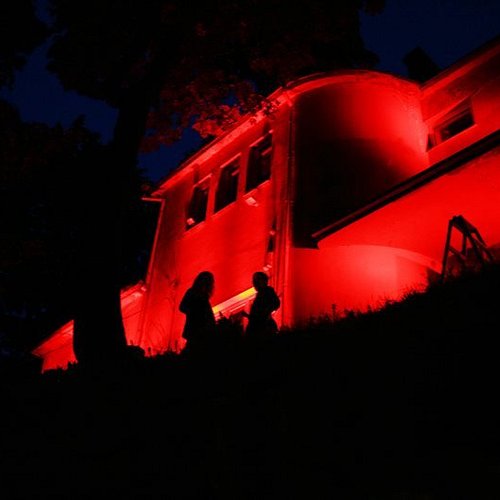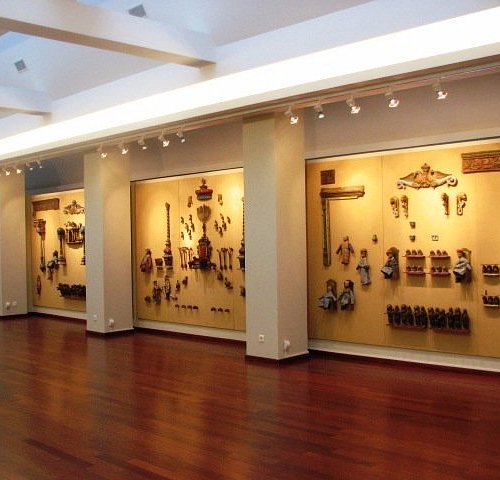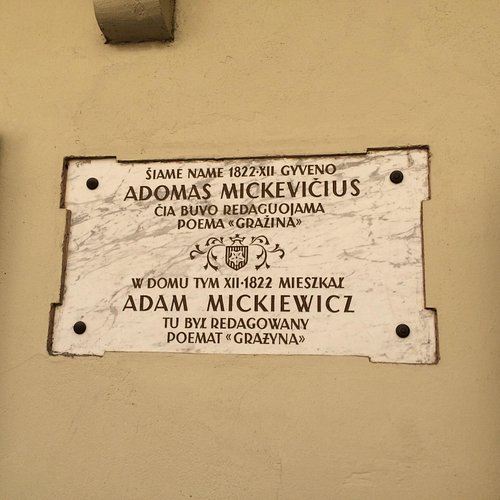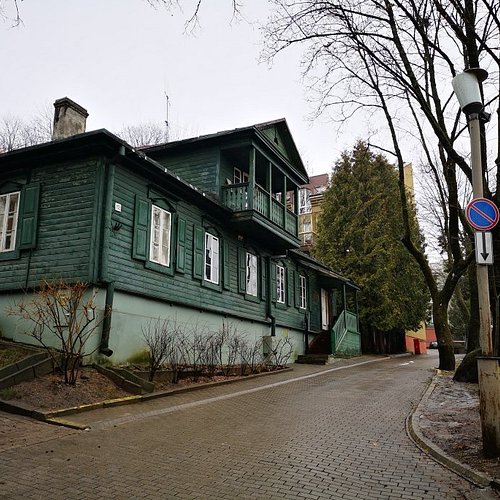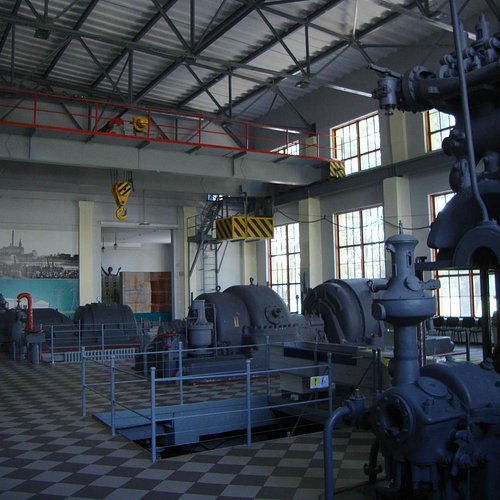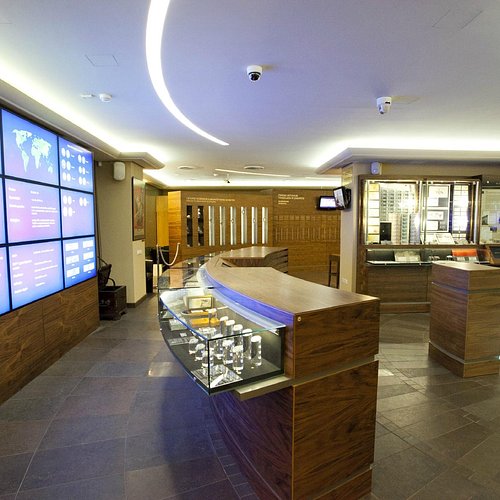Top 10 Museums in Vilnius, Vilnius County
Vilnius, the capital of Lithuania, contains one of the largest surviving medieval quarters in Europe. Included on the UNESCO World Heritage List, Old Town contains almost two thousand medieval, gothic, renaissance, and baroque buildings, all centered on the neo-classical cathedral and town hall. Other popular attractions include the KGB Museum, located in a former Soviet prison, and the 13th century Higher Castle, which affords a glorious view of the city center.
Restaurants in Vilnius
1. The Venclova House Museum
Overall Ratings
5.0 based on 12 reviews
Museum exposition reflects the everyday life of Lithuanian intelligentsia in Vilnius in the 40s and 50s of the 20th century. Many enlightened persons of Lithuania visited this house and associated here. Tomas Venclova, the poet, essayist, spacious-mind publicist, professor of Yale University (USA), grew up here, surrounded by the things exposed in the museum.
2. KGB Museum (Genocido Auku Muziejus)
Overall Ratings
4.5 based on 3,294 reviews
Reviewed By Impavid574
A must-do visit if ever there was one. A tangible insight into the potential for man's inhumanity to man. The water torture cells were somehow the worst of it, but what jars is the fact that the building is in a city centre street which passers-by must have walked alongside while the unfortunates inside were enduring their nightmares. It helps give you an understanding of the very public way Lithuanians express their religious devotion - to get through the Soviet occupation and the Gestapo interlude must have required an extraordinary faith in the possibility of a better life. This is education in its rawest form and not to be missed
3. Gediminas Castle Tower
Overall Ratings
4.5 based on 3,557 reviews
This place is temporarily closed .
Reviewed By mer20172017 - Helsinki, Finland
From the top there’s a nice view of the City. We took the funicular to the top, but you can reach it by walking as well.
4. Vilna Gaon State Jewish Museum
Overall Ratings
4.5 based on 151 reviews
The Vilna Gaon State Jewish Museum is the only Jewish museum in Lithuania. Currently it has three open exposition sites: the Tolerance Center, the Holocaust Exposition and the Memorial Museum of Paneriai. Each of the sites is located in a venue of historical importance for the Jewish community. The indicated working hours are of the Tolerance Center, which hosts unique judaica and art exhibits, permanent and temporary exhibitions. For the working hours of the Holocaust Exposition and the Memorial Museum of Paneriai, please visit our website.
Reviewed By Hawk470 - Baltimore, United States
Named for the foremost non-Hasidic religious leader of his time, the Vilna Gaon State Jewish Museum includes several locations – the Tolerance Center, the Holocaust Exposition (nearby), and the Memorial at Paneriai. This review covers the Tolerance Center which includes Judaica, historical exhibits and art galleries. The museum has something for everyone. We particularly enjoyed the section on the history of Jewish life in Lithuania illustrated with paintings and photographs accompanying very informative and well-written text. The exhibit of Bartosz Fratczak’s photographs of the remaining traces of vanished Jewish communities in Lithuania’s more rural localities evokes these lost worlds with exquisite and tragic black and white photographs and captions. The most revelatory section was certainly the exhibit of the paintings of Samuel Bak, a Vilnius-born artist, who held is first exhibit as a nine-year-old in the Vilnius Ghetto. His paintings display very fine brush technique and a powerful eye for detail in horrific and beautiful scenes. A number of the paintings have a surreal, almost Dali-esque sensibility, but without the preciousness and lack of emotional resonance that those terms imply. Samuel Bak’s work is as deeply emotional and profoundly thought provoking as it is magnificently rendered. Take your time with his paintings. They draw you in and as you look, you see layers of detail reminiscent of the finest early Renaissance paintings with their subjects in the foreground and narrative details embedded in the background. Be sure to watch the video about his life and work and how his life, including how he survived the Holocaust, illuminates his work. If you like to walk, the route from the Choral Synagogue to the Vilna Gaon State Jewish Museum and then to the Holocaust Exhibition (The Green House), will give you an informative and moving introduction to Jewish life in Lithuania past and present. The total walking time, one-way at a relaxed pace, is under half an hour.
5. Adam Mickiewicz Museum
6. Holocaust Museum (The Green House)
Overall Ratings
4.5 based on 258 reviews
Reviewed By MikaelF413 - Vantaa, Finland
There are many Jewish museums in Vilnius. The Green House has the Holocaust Exposition which tells the history of the Lithuanian Jews and their tragic death during the Holocaust in 1941-44. In front of the museum, you can find the monument for Chiune Sugihara who was the Vice-Consul for Japan in Lithuania during World War II. He helped several thousand Jews to leave the country by issuing transit visas to them.
7. Energy and Technology Museum
Overall Ratings
4.5 based on 129 reviews
The museum of Energy and Technology was founded in the first Vilnius central power plant. Visit the expositions of Energetics, Vilnius industry, "Made in Vilnius", Interactive science, "Gas in Lithuania" and "Energy of sun and wind". Admission: adults - 4 Eur. Pupils, students - 2,00 Eur. Disabled people - 0,75 Eur. Children up to 6 year - free. Guided tours: Lithuanian language - 15,00 Eur. English and Russian languages - 22,00 Eur. Themed tour in Lithuanian language - 8,00 Eur. Themed tour in English and Russian language - 12,00 Eur. Education workshops in English 22,00 Eur. Additional services: audio guides in Lithuanian, English, Russian languages free of charge, video guides in Lithuanian and international sign languages.
Reviewed By P2547WFdanielm - Vilnius, Lithuania
This is the location of the first electric power plant in Vilnius. The interior, and all of its machinery, are very well preserved and presented. In addition, there is a wild sound and light room covered in rubber in the basement, a reconstructed societ-times apartment on the second floor, and on the top floor a bunch of all-ages kinetic games. (Including a slide from the top down for the more adventurous.) Check it out!
8. Money Museum of the Bank of Lithuania
Overall Ratings
4.5 based on 467 reviews
Reviewed By 497vladis
The museum of the central bank contains many interesting exponents, it provides a fantastic digital experience and is absolutely free of charge. Highly recommended!
9. Lithuanian Art Museum
Overall Ratings
4.5 based on 11 reviews
Reviewed By S-Man283 - Philadelphia, United States
If you are/were an art history student, you learned a lot about the paintings from France, Italy, Britain, Netherlands, and Flanders. Never a mention of Lithuania. When you go to this national art collection, you will learn that Lithuania had some very impressive (even if not internationally well known) artists, particularly in the 18th-20th centuries. As you are in Vilnius to learn about the local culture, it is well worth taking the time to see this museum. The various paintings of the Vilnius will give you a good introduction to the city as well. It is a good size museum. Big enough to feel like an experience and small enough so as not to give you fatigue.
10. Terra Recognita
Overall Ratings
4.5 based on 20 reviews

